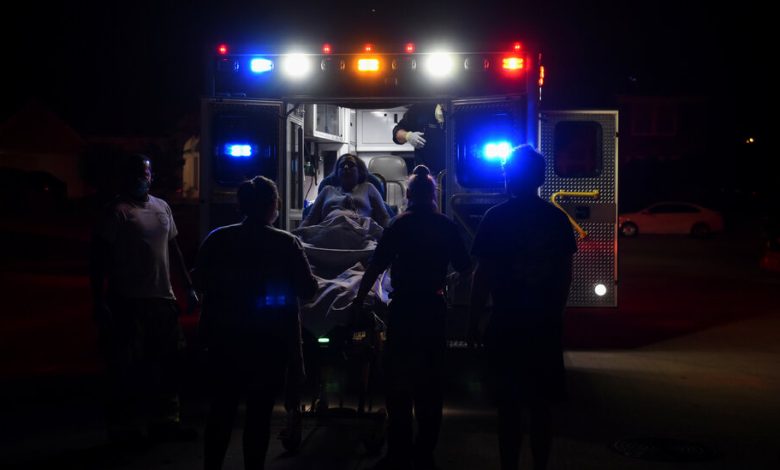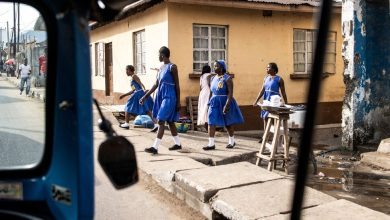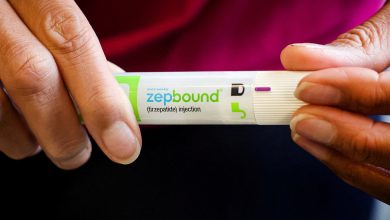Deaths Among Pregnant Women and New Mothers Rose Sharply During Pandemic

Pregnant women and new mothers died in sharply increasing numbers during the pandemic, and not just because of a rise in medical complications that may accompany pregnancy and childbirth. An even greater toll was exacted by other causes, like drug overdoses, homicides and car accidents, according to a study published on Friday.
“It is really heartbreaking to see,” said Jeffrey T. Howard, an associate professor of public health at the University of Texas at San Antonio and lead author of the paper, which was published in JAMA Network Open.
“There is definitely a problem in our country for women who are either pregnant or in the postpartum period, who are vulnerable and under a lot of stress,” he added. “We are failing these women as a society and failing their children.”
Maternal health is widely seen as a key indicator of a society’s overall well-being. Even before the pandemic hit, the United States was the most dangerous place in the industrialized world to have a baby, with the greatest risks concentrated in Black and Native American communities.
The new report highlighted the dangers faced by Native American women, who face the greatest risks during and after pregnancy. Native American women were 3.5 times as likely to die during this critical period, compared with white women, the study found.
They were three times as likely to die of a pregnancy complication, and a nearly four times as likely to die of a cause unrelated to pregnancy. Native American women were five times as likely as a white women to die in car accidents during and after pregnancy, three times as likely to die of drug overdoses or homicide, and four times as likely to die of suicide.
During and after pregnancy, Black women also faced heightened odds of death that were almost double those of white women, along with a risk of dying specifically from pregnancy complications that was 2.8 times that of white women.
They were less likely to die of a drug overdose or suicide during and after pregnancy, compared to white women. But more than any other racial or ethnic group, Black women died as a result of homicide; they were five times more likely to be killed this way than white women.
Dr. Howard and his colleagues analyzed death certificates, which list the underlying cause of death and include a pregnancy checkbox. The certificates ask not only whether the deceased was pregnant at the time of her death, but whether she had been pregnant during the six weeks beforehand or at any point during the previous year.
The scientists identified 2,019 deaths in 2019 and 2,516 deaths in 2020 among women who were either pregnant at the time they died or had been pregnant within the past year. In 2020, there were increases in deaths related to pregnancy complications, as well as deaths from other causes.
Drugs, motor vehicle collisions, homicides and suicides were the most common of these; suicide was the only category that saw no increase in 2020 over 2019.
Of the deaths recorded in 2020 for pregnant or previously pregnant women, only 23 listed Covid-19 as the underlying cause of death (171 listed Covid as a contributing factor).
Dr. Howard said he expected the trends to worsen, and for conditions for pregnant women and new mothers to become even more challenging, as more states curtail access to abortion and adopt policies that restrict access to birth control.
Maternal health is influenced by a stew of social and economic factors, including disparities in access to care and the quality of that care. Still, experts at the Centers for Disease Control and Prevention say that the vast majority of maternal deaths — some 80 percent — are preventable.
The pandemic took an outsized toll on the Native American community, where average life expectancy fell by six and a half years, a dramatic drop. Life expectancy among Native Americans and Alaska Natives is now 65 years of age — as it was for the nation overall in 1944.
Native Americans were particularly vulnerable to the coronavirus because of generally poorer health, as well as endemic poverty, racial discrimination and inadequate access to health care, studies have found.
High rates of Type 2 diabetes and obesity among Native Americans increased susceptibility to Covid, and also contributed to pregnancy complications. Many Native American and Alaska Native women live in poverty and in areas with high rates of violent crime.
They often start prenatal care late in a pregnancy, because they lack health insurance and can’t afford medical care. They frequently struggle with such serious conditions as preterm labor, hemorrhaging or bleeding, and pre-eclampsia, or high blood pressure related to pregnancy.
Infant mortality rates are high, and Native American babies are twice as likely to die before their first birthdays than white babies.
In an effort to address these disparities, Jessica Whitehawk started the Ttawaxt Birth Justice Center on the Yakama Indian Reservation in eastern Washington State, which provides access to prenatal care, support during pregnancy and afterward, and instruction about traditional practices like foraging for nutritional foods, herbs and medicinal plants.
Centuries of oppression have scarred Native American communities, compounded by present-day food insecurity and housing shortages, Ms. Whitehawk said.
“The trauma experienced by generations who were separated from families and sent to boarding schools — it doesn’t just go away,” she said.





